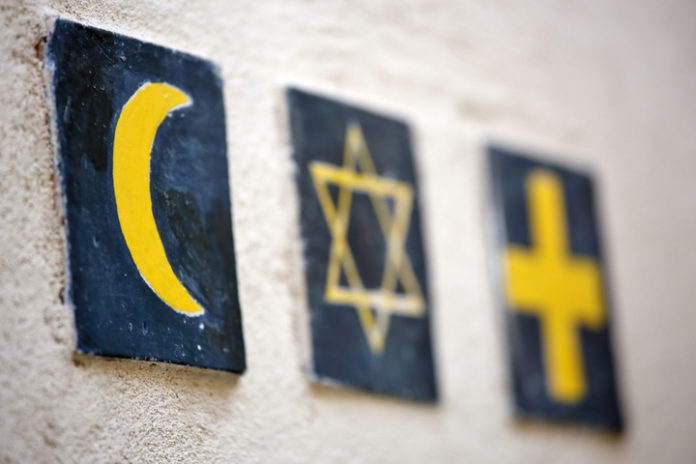The phrase ‘addiction doesn’t discriminate’ has been used for years as a reminder that drug and alcohol abuse can affect anyone from any walk of life.
But that age-old saying takes on a spiritual meaning with an estimated 40 million Americans reportedly abusing nicotine, alcohol or other drugs, according to the National Center on Addiction and Substance Abuse.
Religious communities are faced with an addiction epidemic. Christians, Muslims and Jews join the millions of Americans battling substance abuse. For some, religion can offer support during a difficult journey to recovery. But for others, the same faith can be a source of shame that drives them to addiction in secret.
Christianity, Judaism and Islam remain the three prominent religions in the United States, according to the Pew Research Center, and each has its own guidelines for dealing with addiction and substance abuse.
Christianity
Christians make up more than 70 percent of the United States population, according to Pew, and is reflected by the religion’s resources for drug and alcohol addictions. Though the religion’s many denominations broach addiction and substance abuse differently, Christianity houses one of the most widely-used recovery programs in the country.
“The 12 Steps” approach commonly used in treatment programs has religious roots in Christianity, centering on recovery through prayer and surrendering control to God.
Sherry Jones, executive director of Christians United Against Addiction in Philadelphia, said most of the church or faith-based groups she is familiar with using the 12-step program.
“I think the core of the original 12-step program is that we need something greater than ourselves to focus on and assist us in our walk,” Jones said. “Addiction is a disease – of body, soul and spirit – and you need something outside of you to believe in. For Christians, that God of understanding is their relationship with Jesus Christ.”
Some remain critical of the program’s success rate. Retired Harvard Medical School professor Lance Dodes claims in his book “The Sober Truth: Debunking the Bad Science Behind 12-Step Programs and the Rehab Industry” that peer-reviewed studies pegged the program’s overall success rate between 5 and 10 percent.
But Dodes noted that the 12-step program can work. Much of its success, he said, stems from the camaraderie it provides to those dealing with addiction. Jones has seen the program work for herself in the seven years that he’s led Christians United Against Addiction.
“I’ve watched people change,” he said. “I’ve watched them grow before my eyes.”
The support group hosts everyone, from those struggling with addiction and in recovery, to family members coping with… (continue reading)
















